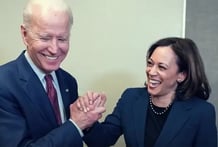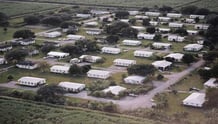On January 6, hundreds of angry supporters of the US president shattered windows and stormed into the Capitol Hill, known as the parliament of the USA, amid the ongoing session of the formal declaration of the winner of the 2020 US Presidential election. This unprecedented event was responded to by security personnel leading to six deaths. Additionally, just before two days of the transfer of power to the newly elected president, Trump supporters carried out armed showdown in Ohio and other places claiming electoral fraudulent and declared for similar events in all states on the 20th January — the day of taking the oath of the newly elected US president. Amid unprecedented security in the USA, the President-elect is going to take the oath. Many across countries already raised a relevant question on whether such events can have impacts on democracy within and outside the USA.
Given that many such political events — and sometimes more severe events — occur in more functional and less functional democracies, it may primarily appear that the Capitol Hill event can have no significant impact on democracy. In fact, a far-right mob stormed the Hungarian parliament in 2006, and demonstrators of the Querdenker movement stormed the steps of the German parliament building in 2020. But this event, rendered by some political analysts as a direct attack on democracy, and subsequent events are not negligible at all, as these happened in the USA, which has become the most important voice of democracy by promoting democratic values in the world for the last few decades since the Second World War. In my opinion, these events can have impacts on democracy within and outside the USA, even though the extent of consequences is disagreeable.
Despite disturbances, immediate reactions of political leaders of the USA obviously show their commitment to democracy. In fact, the certification process resumed and Capitol Hill declared Joe Biden as President and Kamala Harris as Vice President shortly before four o’clock of the 7th January. As it further appears, the House of Representatives already impeached the President, considered to be the instigator of the turmoil in Capitol Hill in Washington DC. In the impeachment, some republican leaders, along with Democrats, voted against the republican President. These indicate how US democratic institutes are firmly established and stood tall after the devastating event. Optimistically saying, these can help the next administration to uphold democratic values in the USA and the world.
But, undeniably, the Capitol Hill event and subsequent chaotic events have already left scars on the US democracy. Moreover, these events that reflect how democratic values are under threats at present are not isolated at all. In fact, the USA has been undergoing diverse challenges to democracy for the last few years. Especially divisive politics and the presence of some other elements including white supremacy have set the grounds for years for the occurrence of such events. Of course, several Republican senators’ consistent support to unfounded electoral fraud claims of the president is indicative of weakness in liberal democratic values among US political leaders. These may unsurprisingly put hindrances to repairing harms already brought to the US democracy in the days ahead.
The recent most chaotic events can cause some changes in democratic values in some other countries too. In my opinion, such a possibility increases because traditional Western — or liberal — democratic values are undergoing some changes in recent years driven by the increased presence of populism, nationalism, or populist nationalism, on the one hand. In fact, such a change is taking place in several traditional democracies. On the other hand, there is an increase in authoritarian regimes in different areas of the world. This is more visible after the commencement of the current pandemic. It is not unlikely that far-right or illiberal democracies and authoritarian regimes can use recent subversive events in their favor for maintaining non-liberal ideologies or strengthening autocratic power.
In the meantime, proponents of non-democratic forms of politics, such as authoritarianism, see the Capitol Hill attack as a victorious moment. As it appears, some countries having either de-jure or de-facto non-democratic values including Venezuela and China clearly criticized the very process of American democracy as fragile. On the contrary, democratic countries including the United Kingdom, India, Germany, and France cautiously raised their concerns but simultaneously voiced favoring American liberal democracy — known as one of the oldest and systematic democracies in the world. Yet, criticisms made by de-jure and/or de-facto non-democratic countries may be indicative of potentially rising competition between Western democracy and illiberal forms of politics in the coming years, though the world saw the triumphal of liberal democracy after the Second World War.
The decreased moral standing of the USA caused by Capitol Hill and subsequent frantic events can, more importantly, affect its promotion and protection of democratic values in the world and give non-democratic ideologies some advantages. Immediately after the event, some countries have, in actual fact, questioned the moral standing of the USA for promoting democracy globally. For example, Zimbabwe’s President Emmerson Mnangagwa reacted to the Capitol Hill event saying that the US has no moral right to punish another nation under the guise of upholding democracy. As it seems, somewhat reduction in — more appropriately, ineffectiveness of — transboundary pressure especially of the USA for upholding democratic values around the world may not be unsurprising in the years to come.
Not less important is that isolationist agenda and some other relevant facts can make it somewhat more difficult for the USA to restore its image and trustworthiness among friends and enemies in a practical sense. In actual fact, the USA’s pulling out of several agreements — including the Iran nuclear deal — and increased nationalist agenda especially in the last few years distanced it much from global affairs. Because of these, the USA has also lost its earlier appeal to global affairs. Additionally, there are some other challenges including the strengthened position of China and Russia in global or geopolitical affairs in recent years. All these may make it somewhat harder for the USA to effectively stand against the potential rise of non-democratic values or authoritarian politics in -pandemic era.
But whether the January 2021 turmoil in Capitol Hill and subsequent chaotic events can have significant impacts on democracy in the USA and the world depends on how the USA and other liberal democratic countries uphold democratic values in their own countries and the world. More specifically, the future of traditional forms of democratic values in the USA as well as in the world is largely dependent on how the next US president, rendered as an apt and farsighted political leader, can manage some undeniable troublesome internal affairs and move globally. But there is no doubt that the next US president will face some challenges, which are already in place because of diverse reasons noted above.












